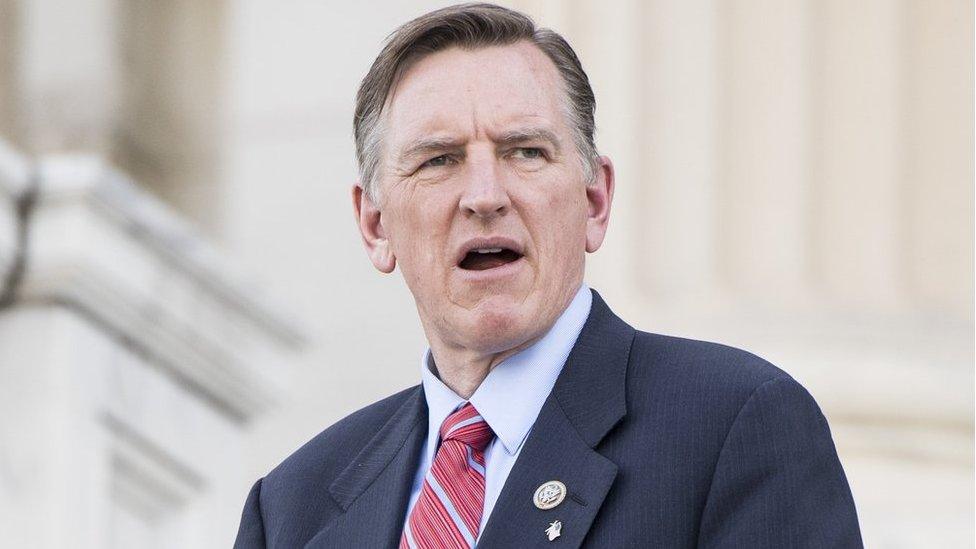Beto O'Rourke: Democrats dazzled by rising star in Texas
- Published
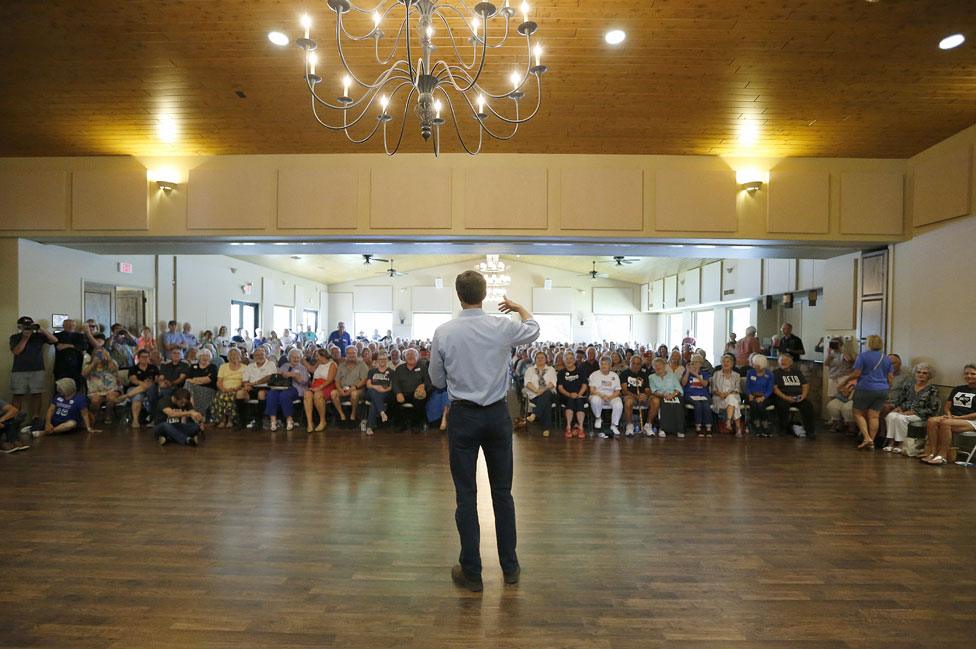
O'Rourke at a town hall meeting on his criss-cross tour of the state
A rising star in the Democratic Party could pull off an unlikely victory in the upcoming US mid-term elections by unseating a big-name Republican in the traditionally conservative state of Texas.
Robert Francis "Beto" O'Rourke is bouncing on a small stage in Edinburg, waving his arms wildly, all 6ft 4ins (193cm) of his gangly frame crackling with energy.
His toes are well over the edge of the boards and his suede shoes are soaking up dark splashes of sweat from his brow.
Mr O'Rourke, who has represented El Paso and its surrounds in the US House of Representatives since 2013, is running for the Senate - and you can't fault him for effort.
"Everyone is welcome," he smiles to the packed audience, insisting that the invitation even extends to "the dude in the Make America Great Again cap".
For today at least, the offer is rhetorical.
There are no red-and-white Donald Trump hats in sight and, one suspects, precious few anywhere in Hidalgo County, where Edinburg bakes in the Rio Grande Valley, just north of the Mexican border.
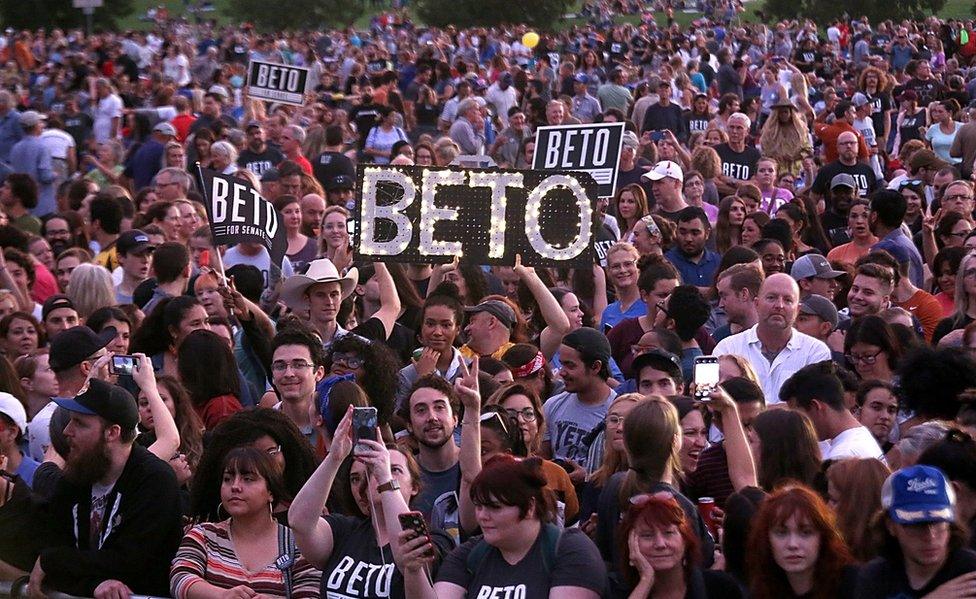
Many of O'Rourke's supporters are young or first-time voters
This is deeply Hispanic, deeply Democratic territory. You can spend a long time here before you hear a word of English.
While Texas voted for Mr Trump as president in 2016 by 52% to Hillary Clinton's 43%, Hidalgo County went for the Democrat by 68% to 28%.
Mr O'Rourke may not have Latin roots but he is fluent in Spanish and he leans heavily on his "Beto" nickname - a common contraction of Roberto - which he picked up as a child in El Paso.
But the congressman is not only campaigning on favourable ground. He has spent much of the past year criss-crossing Texas, boasting that he has visited all 254 of its counties.
Can liberal Beto O'Rourke end the Democratic drought in conservative Texas?
It appears that he is following a twin-track strategy, enthusing his left wing base by calling for reform of criminal justice and immigration laws while also trying to attract disillusioned Trump supporters by promising improved education and universal healthcare - and appealing to both groups by accusing the White House of lavishing a giant tax cut on billionaires at the expense of ordinary Americans.
The biggest cheers come when he vows to end the nexus between politics and big business, to drain the swamp if you will.
He is almost drowned out as he looks out at the audience and declares "I see people instead of corporations! I see people instead of special interests!"
Mr O'Rourke's passionate delivery along with his good looks and background as a skateboarder and a punk rocker have endeared him to liberals across the country, earning flattering comparisons with another Irish-American, that hero of modern American liberalism Bobby Kennedy.
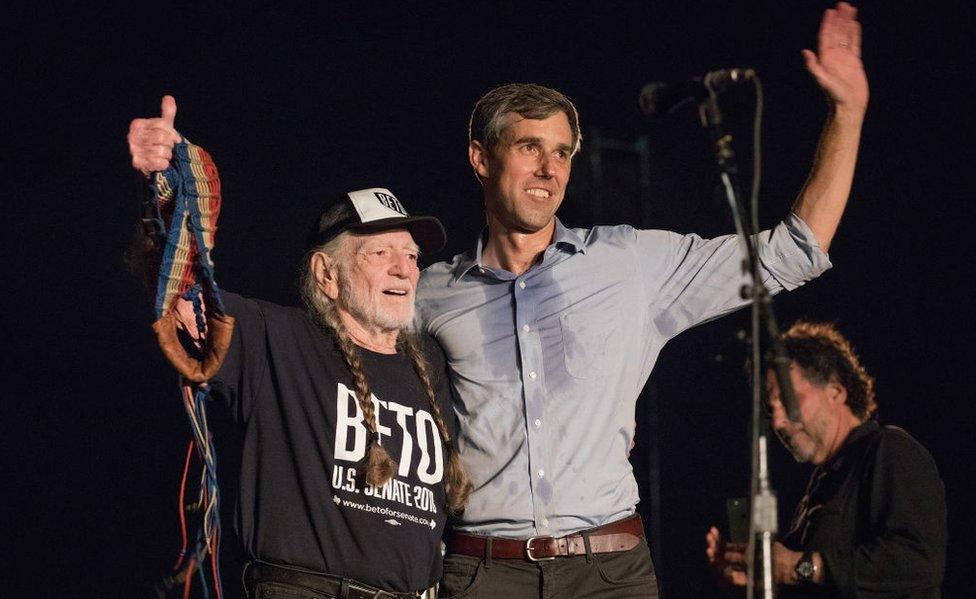
A huge crowd topping 50,000 greeted him and Willie Nelson
Mr O'Rourke has said he is "open to" replacing the controversial Immigration and Customs Enforcement agency, external (ICE), he favours tightening restrictions on guns and has said he would vote to impeach President Trump.
On Saturday, he took to the stage in the left-leaning state capital Austin with the country music legend Willie Nelson, briefly joining in on the chorus of On the Road Again. Tens of thousands of Texans flocked to watch.
Mr O'Rourke's speech was described by the Dallas Morning News, external as "impassioned" and "brimming with his trademark optimism."
"We will be defined not by our fears - when we allow that to happen we build walls, we ban people based on their religion, we describe the press as the enemy of the people," he said, rebuking President Trump.
"We should be defined by our ambitions, our aspirations."
Mr O'Rourke has benefited from a flurry of small donations from all over the United States, raising millions of dollars more than his rival in a race which may help determine who controls Congress for the next two years of the Trump presidency.
The Democrats are favoured to win control of the House of Representatives but are in a much tougher battle for the Senate, where they need a net gain of two seats but are defending 10 seats in states which Mr Trump won in 2016.
The man trying to fight off this challenge is Ted Cruz, a former (and perhaps future) presidential candidate who ran Mr Trump close for the Republican nomination in 2016.
Mr Cruz is in many ways the opposite of his rival, an astute lawyer with a studied, precise delivery and a bête noire of the left who is also infamous for attracting the enmity of some Republican colleagues in Washington.
Yet with his campaign slogan "Tough as Texas", he epitomises the strong streak of conservative self-reliance which runs through the heart of this vast rural state, as much a part of its identity as cowboy boots and barbecue sauce.
He should be strolling towards re-election.
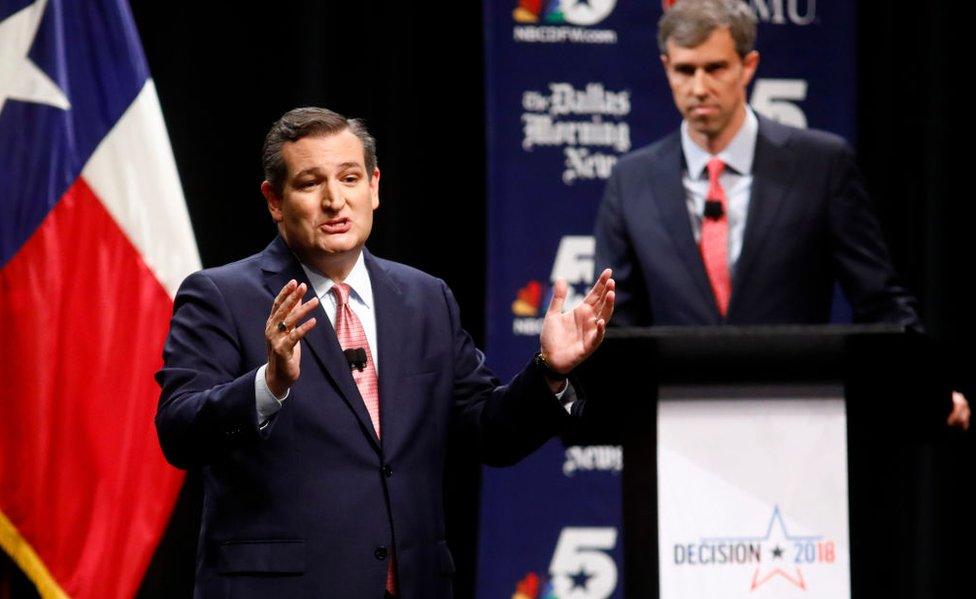
Cruz is a darling of the evangelical wing of the Republican Party
Polling has varied widely with some surveys suggesting that Mr Cruz has a decent lead and more recent data indicating a tight race, external.
Either way, in Buddy Holly's home town of Lubbock, in the north west of the state, Mr Cruz isn't taking any chances.
He spends most of his stump speech lambasting Mr O'Rourke whom he accuses of taking "radical" positions on drugs, policing, immigration and the right to bear arms.
Mr Cruz punctuates his criticism with the crowd-pleasing phrase "and that ain't Texas!"
"This is a debate between two approaches," he tells his overwhelmingly white audience, "between socialism and the American free enterprise system. Between tyranny and liberty... between the crazy left wing and the great people of the state of Texas."
That draws a big cheer. Here they love the style of the man in the ostrich skin boots.
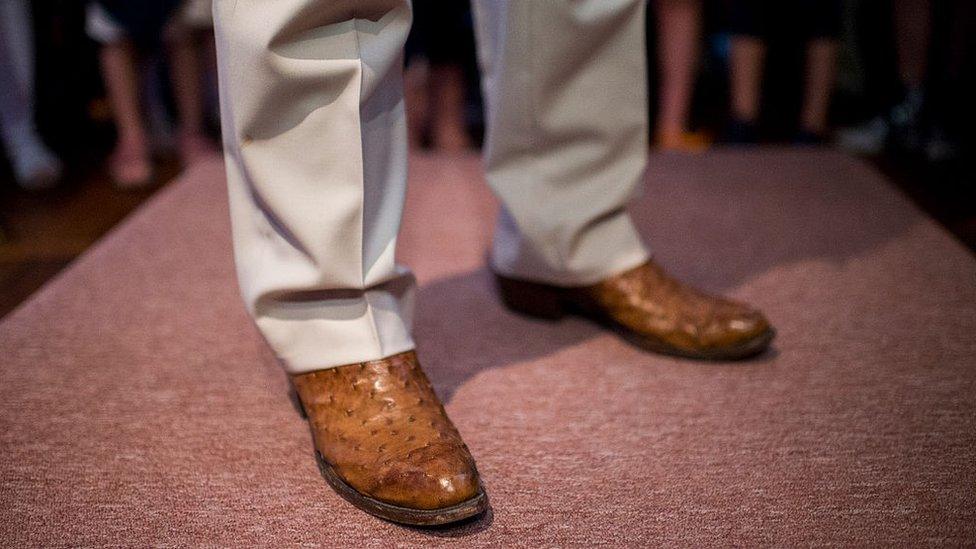
When asked what he likes about the senator, one member of the crowd, Monti Bandiber replies with just three words - "his conservative values".
"I just really like his morals," says another supporter, Lyn Vandiver. "I think he's a very Christian man. And that's the most important thing to me."
By contrast she regards Mr O'Rourke as "a liar" both for his account of the events around a youthful conviction for drink driving and in the way he has spoken about his support for black athletes who kneel at sporting events during the national anthem to protest against police violence and racial inequality.
This stress on morality is interesting given the identity of the current president, a man who was heard bragging that he can force himself on women because of his fame.
Ms Vandiver is not fond of Mr Trump personally, well aware that Mr Cruz exchanged insults with the New York property tycoon during the presidential campaign, calling him a "pathological liar," "utterly amoral," and "a serial philanderer" among other things.
Now the Texan senator is caught between the devil and the deep blue sea. Mr Trump's dominance of his party is such that a Republican candidate cannot be rude about him and expect grassroots support.
And so Mr Cruz finds himself praising the president and his policies, swallowing a dollop of hypocrisy mixed with a measure of humiliation.
It is another reason why he is spending as much time as possible attacking Mr O'Rourke as "a socialist", a dirty word in much of the US and particularly in Texas, which prides itself on a disdain for government.
When I point out to Mr Cruz that his opponent hasn't actually advocated state ownership of the means of production - a widely accepted definition of socialism - the senator shoots back "he supports socialised medicine".
The senator adds that "as Margaret Thatcher said, the problem with socialism is eventually you run out of other people's money".
Intriguingly when I ask Mr O'Rourke the same question - do you support common ownership of the means of production, he is coy.
It is hard to think of another mainstream US politician who would answer with anything other than the word "no".
Mr O'Rourke and his Republican colleague livestreamed their road trip to Washington DC last year.
But even given several chances, Mr O'Rourke does not disavow socialism as a creed, instead insisting "the party labels just do not matter anymore. I'm convinced of it. It's not Republican or Democrat. It's Texan and American and that's what we're standing for in this campaign".
"Investing in the ability for everyone to be well enough to live to their full potential," does not need a label, he says, adding "it's also the most fiscally conservative thing possible".
Matthew Wilson, associate professor of political science at Southern Methodist University in Dallas, says Mr O'Rourke is "well to the left" of other Texan Democrats and yet is managing to sound more moderate.
Prof Wilson says it will be interesting to see whether voters are "more interested in someone who has a conciliatory style" or "in evaluating the ideological substance of the positions".
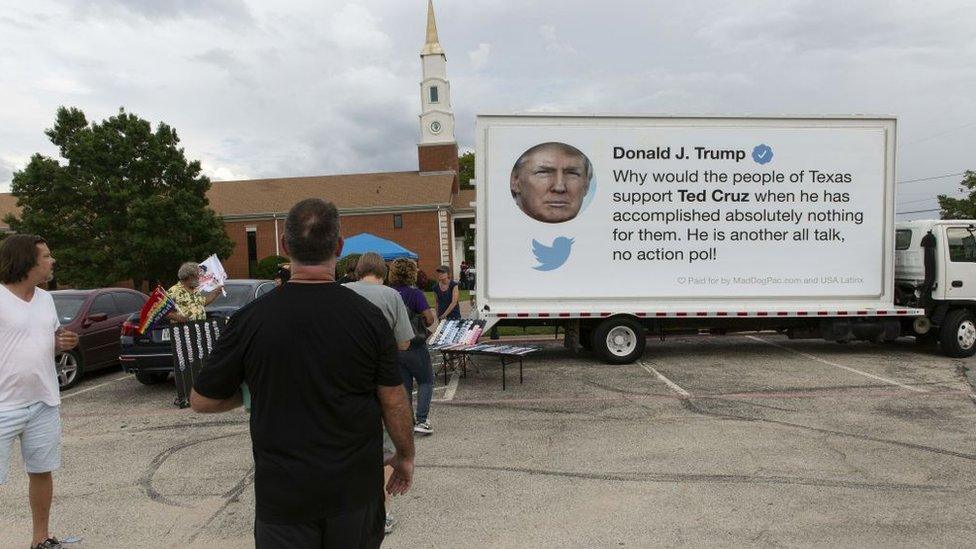
A trucks sponsored by a pro-Democrat group features a Trump tweet critical of Mr Cruz
In the Dallas suburb of Deep Ellum, there are plenty of young people who are interested in both.
In The Three Links, which offers drinkers the chance to try their hand at punk karaoke (we are treated to a decent rendition of Kids in America), supporters of Beto O'Rourke gathered to watch the two candidates go head to head in a televised debate.
"You can't go a mile in Dallas without seeing Beto signs," said Chris Cude, 29, a lawyer. "They're attracting people who want to be a part of it. He associates with a younger, more adaptable, accepting, millennial crowd."
Sunny Gruber, 30, a technology worker said she too had noticed a profusion of black and white Beto signs in the city and "a lot of folks campaigning for Beto" whose campaign she describes as "really invigorating and exciting for America".
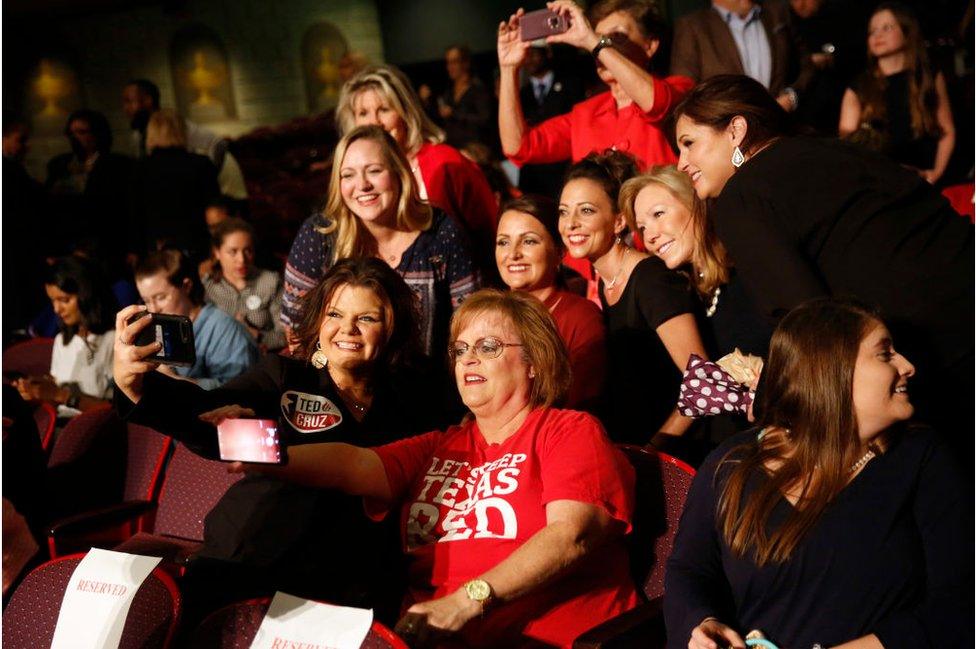
Cruz supporters snap a selfie ahead of the September debate
Success in the big cities of Dallas, Austin, Houston and San Antonio is one thing but Mr O'Rourke faces a formidable challenge if he wants to win over rural voters too.
Whereas Ted Cruz plays on fears about the impact of a Democratic senate victory in Texas, comparing his challenger unfavourably to the democratic socialist presidential candidate Bernie Sanders, Beto O'Rourke is projecting a message of hope, trying to tap into the same disenchantment which propelled Mr Trump into the White House.
Mr O'Rourke's task remains very tough.
For years, Democrats have been waking up disappointed from dreams of victory in Texas, where they haven't won a US senate seat in 30 years.
Still, Texas is changing, becoming more urban and less white, and assuming Mr O'Rourke can generate a high turnout among his base, a liberal victory in the Lone Star State no longer looks impossible, which in itself is pretty remarkable.
- Published15 March 2017
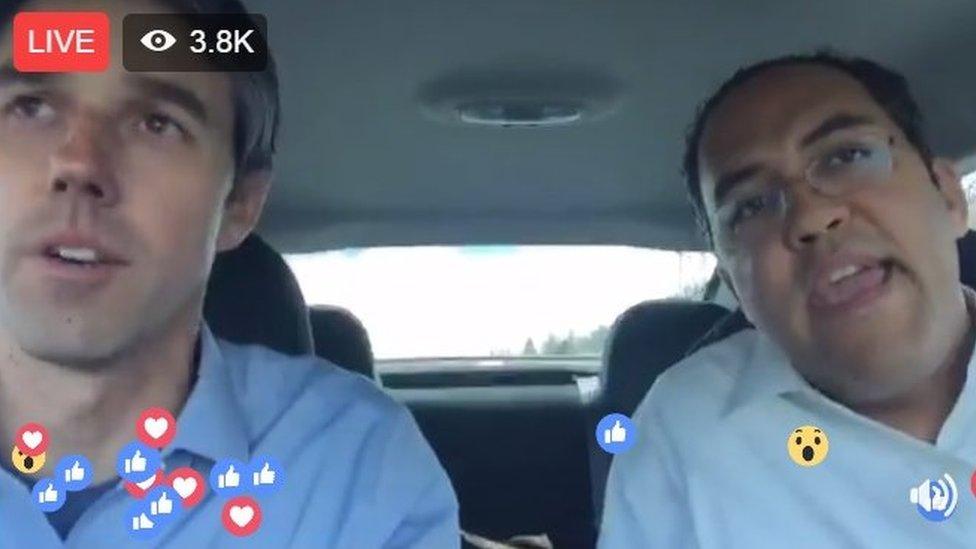
- Published18 September 2018
- Published29 August 2018

- Published2 November 2018
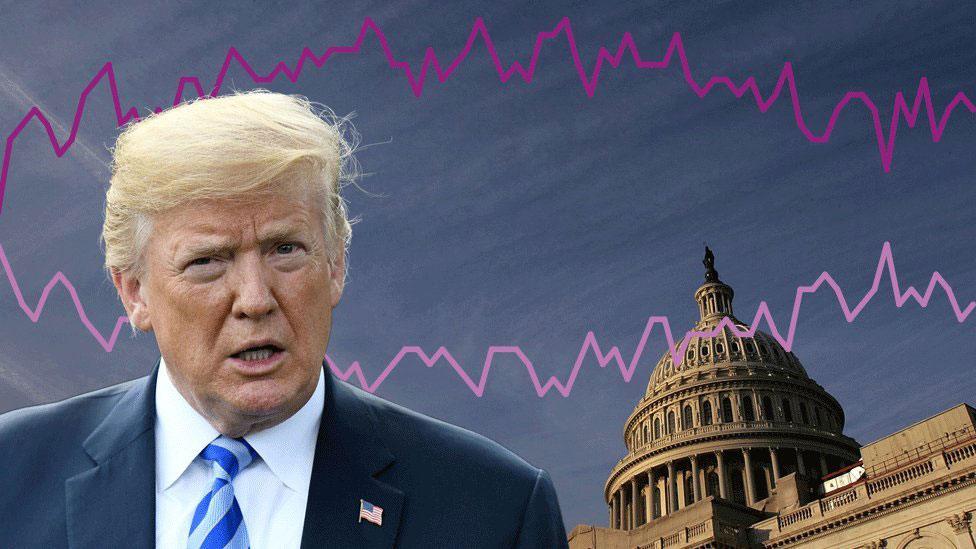
- Published8 June 2018
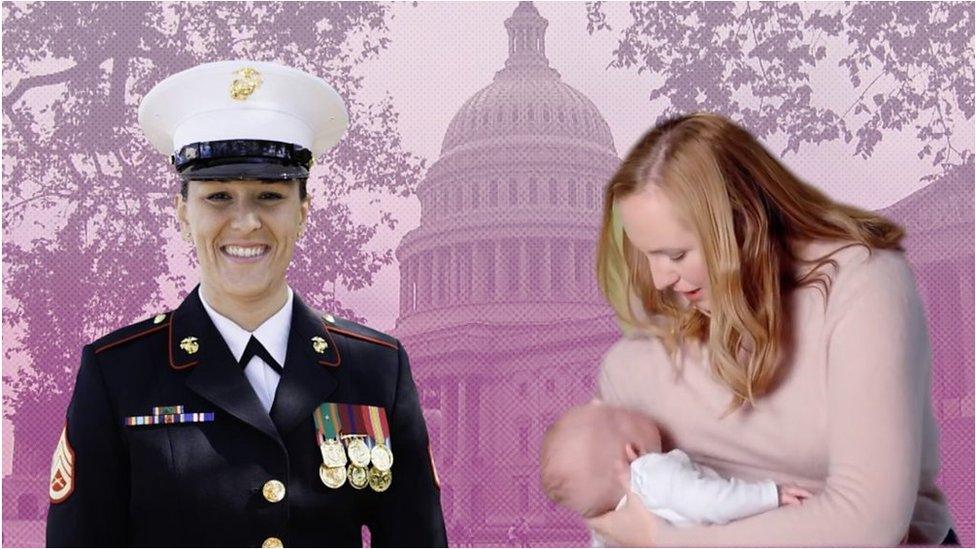
- Published6 November 2018
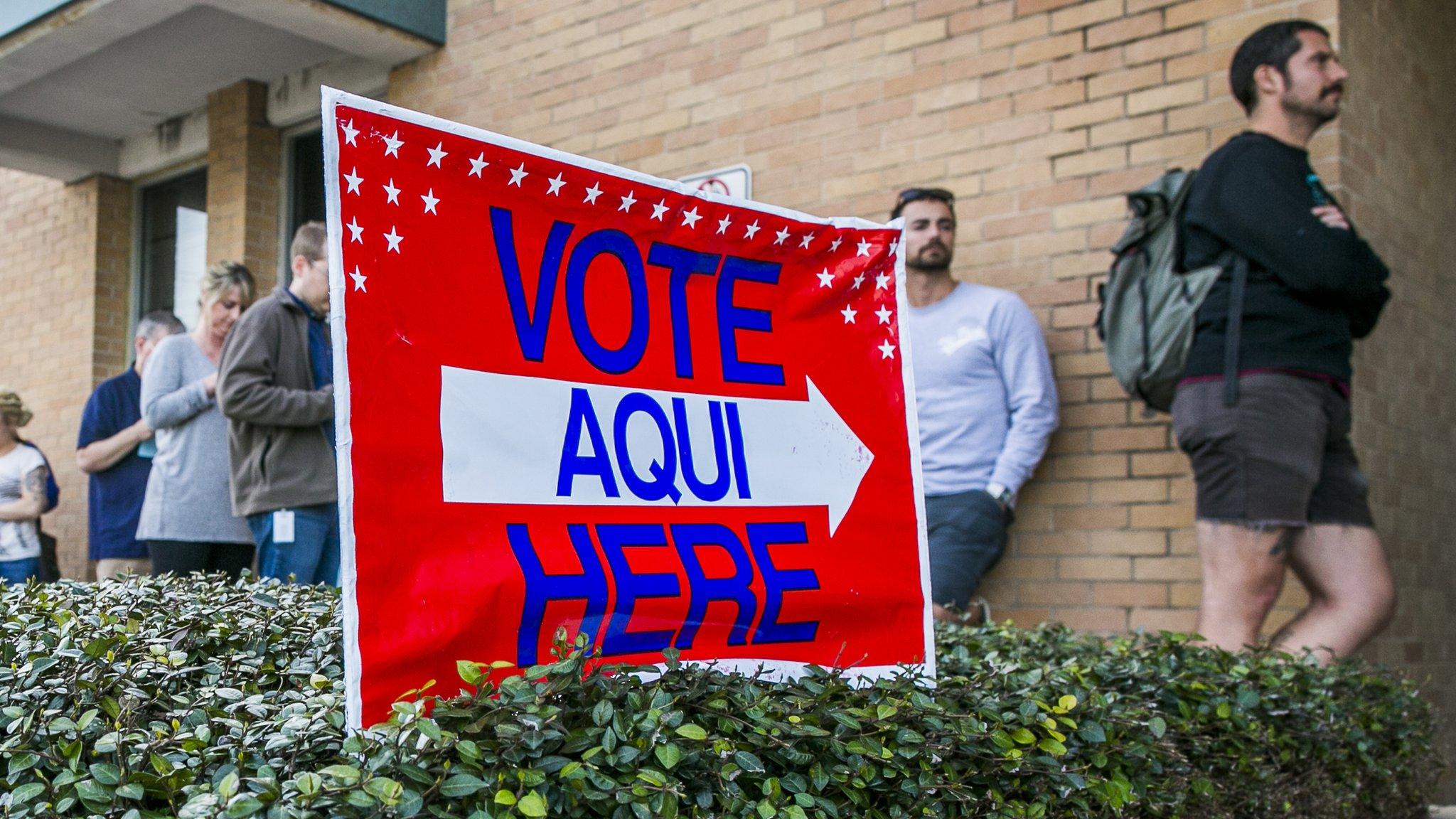
- Published28 September 2018
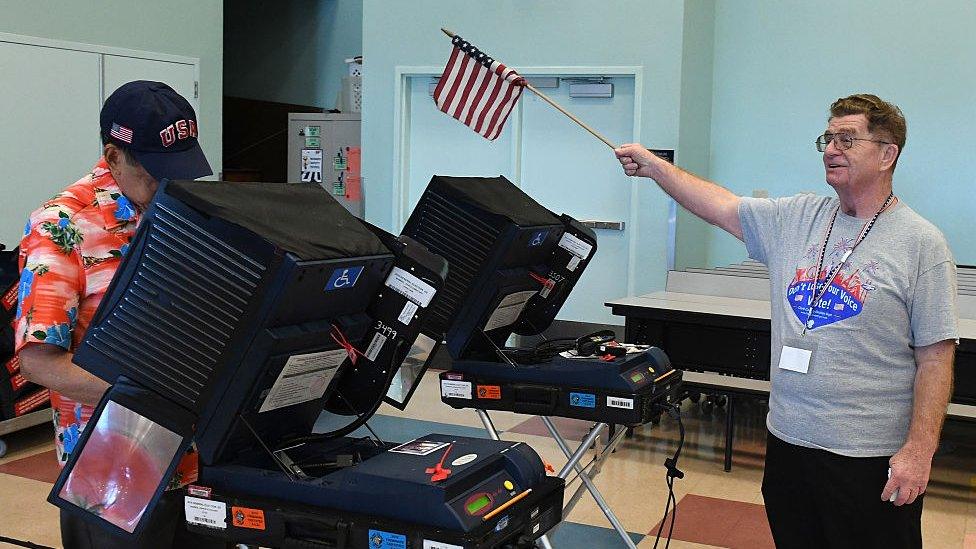
- Published23 September 2018
